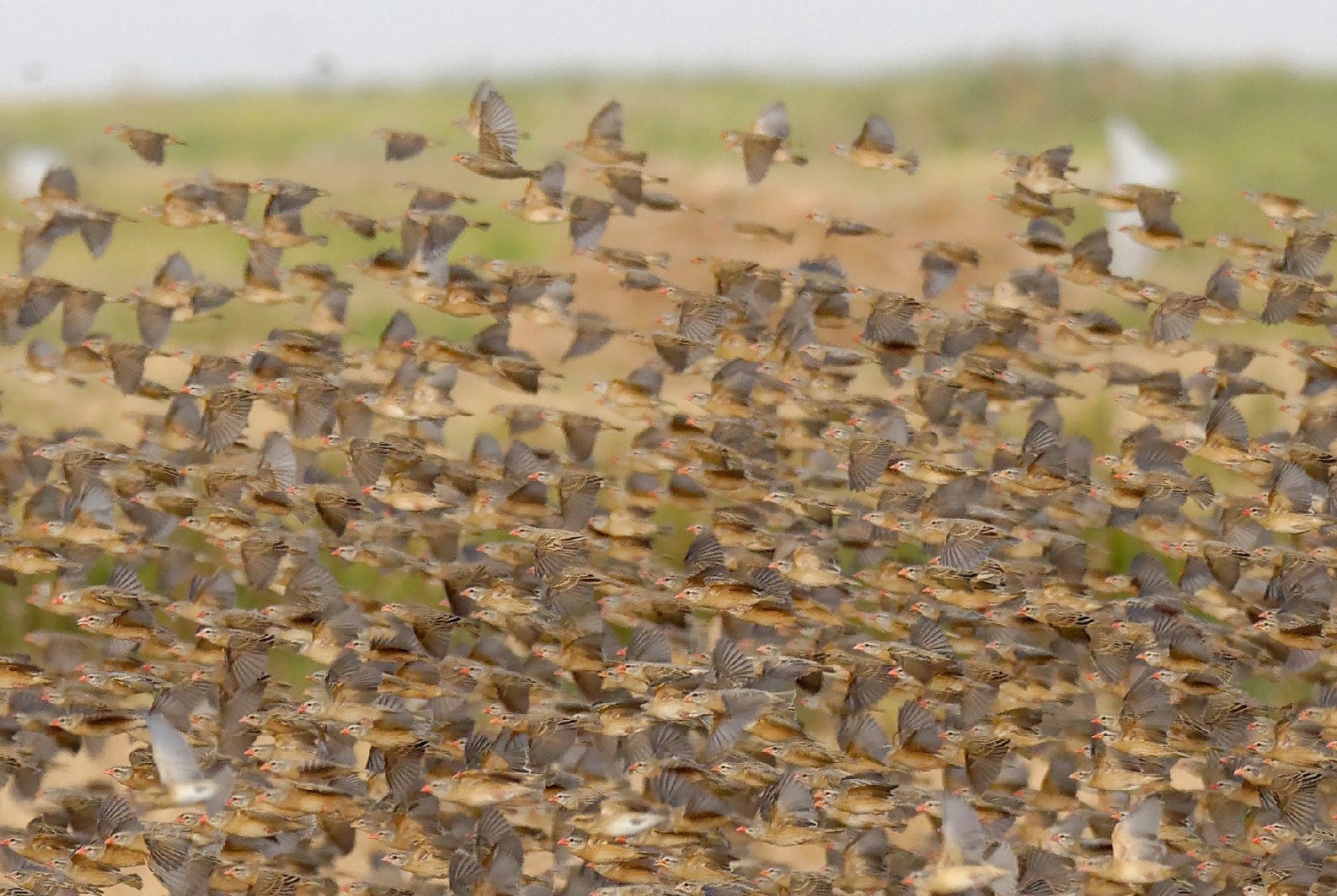Quelea birds destroys farmlands in Kebbi (Credit: FAO)
Joel Aiki, permanent secretary in Kebbi state’s ministry of agriculture, says the state and federal governments have been taking proactive measures to keep quelea birds at bay.
Quelea birds have ravaged almost 75 thousand hectares of dry season rice plantations in Kebbi state.
According to reports on Monday, over a hundred farmers have lost their crops to the raging birds in the Argungu local government area (LGA) of the state.
WHAT ARE QUELEA BIRDS?
Advertisement
The quelea, also known as ‘Africa’s feathered locust’, feeds primarily on seeds and cereal crops.
The birds easily migrate to locations of recent rainfall and grass seeds to exploit food sources.
It is regarded as the most numerous undomesticated bird on earth and extensive control measures have largely been unsuccessful in limiting its population.
Advertisement
In August 2022, the Kebbi state government announced the invasion of the birds on farmlands from neighbouring countries.
The birds were said to have migrated to the country from the Republic of Niger, Republic of Benin, Senegal, and Cameroon.
The state had purchased and distributed about 128 trucks of fertilisers to farmers across 225 wards, to fight the pest invasion.
A sum of forty million naira was also approved by the federal government to control and reduce the menace caused to farmlands by the birds.
Advertisement
‘KEBBI GOVERNMENT IMPLEMENTING MEASURES’
Aiki told TheCable that the government is aware of the destruction of crops by the birds and has been doing its best to curtail the damage.
“It is true we have quelea birds attack and it is normally an annual occurrence because these are birds who keep looking for food. Accidentally, Kebbi state happens to be the major rice producer in the country, currently producing perhaps more than every other state,” he said.
“Kebbi happens to lie along two international borders, and so that becomes the corridor for the movements of quelea birds into Kebbi state. And they don’t just stay in Kebbi, they move to Sokoto, Zamfara and other states where they will find food.
Advertisement
“But I want to say that Kebbi state government has been aware of this and it took proactive measures by stationing a company that takes care of the pests and quelea attacks almost as soon as they appear. Once we make the report, then action is taken.
“The state government normally does aerial application of pesticides like twice in a year, then the federal government also complements and does like two times in a year.
Advertisement
“So we are aware and we have received reports of the quelea birds but the area of damage as reported by that news is not correct. We don’t have those hectares of land, that’s about 75 thousand hectares under cultivation this year because of energy challenges, petrol particularly. Those estimates made by that report are wrong.”
Aiki also said the state government hasn’t been receiving reports of quelea birds damages from local governments.
Advertisement
“Normally, the ministry will do the control on its own. We use motorised sprayers, we use manual knapsack sprayers but this time around we have to engage aerial spray and that’s going to happen very soon,” he said.
“We already have an arrangement on ground to attack as soon as we have reports of the quelea birds. We also have our staff in the communities doing pest surveillance.
Advertisement
“We also expect to receive reports from the local governments, that didn’t come but we have seen what is happening in the field and action is already on.”
Quelea Birds Wreak Havoc in Kebbi State.
About 75 thousand hectares of dry season rice plantations attacked by Quelea birds in Argungu, Kebbi State.
An estimate of a hundred Farmers have lost their farms already while the birds are still raging. pic.twitter.com/h53IR8pF6A
— NTA News (@NTANewsNow) June 19, 2023
Add a comment






